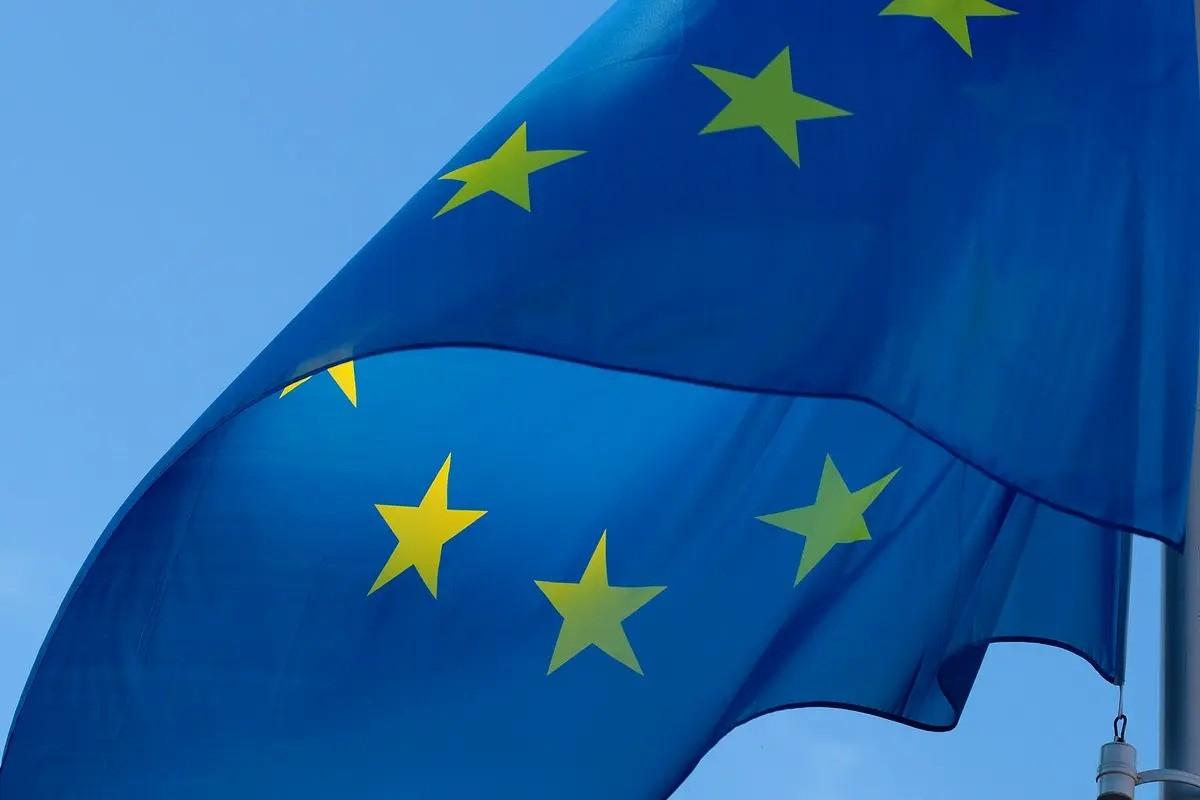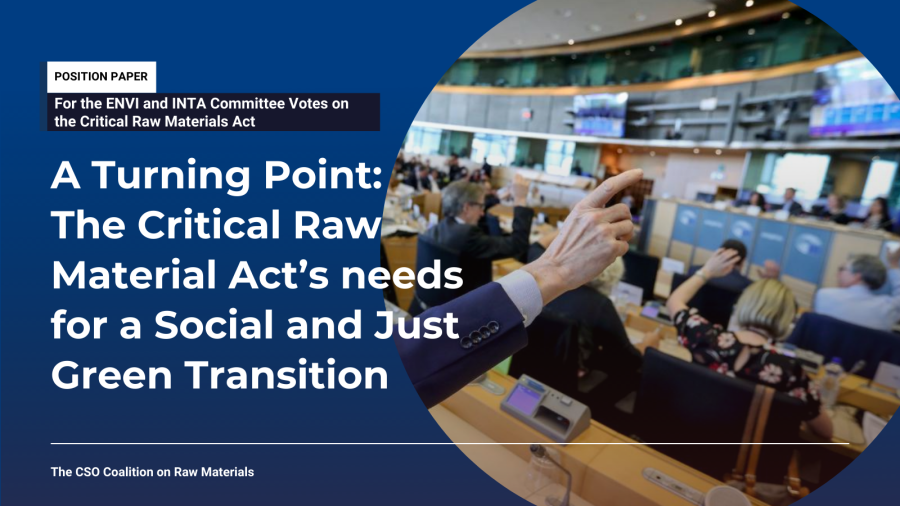
Update: On May 24, 2024, European Council approved the Corporate Sustainability Due Diligence Directive.
By Edson Krenak (Krenak, CS Staff)
The Corporate Sustainability Due Diligence Directive, the European Union’s new, watered-down, proposed law, aims to improve business regulations but fails to adequately consider Indigenous Peoples. Its language is not strong enough and its standards are unclear, lacking specific measures to protect these rights effectively. The EU needs to start viewing the rights of Indigenous Peoples as vital components of environmental and social policies, ensuring they are fully integrated and prioritized.
Despite setbacks attributed to intense lobbying efforts by German, French, and other European companies and corporations, the Council of the European Union approved the Corporate Sustainability Due Diligence Directive, alternatively abbreviated as CSDDD or CS3D, on March 15, 2024. It is scheduled to be voted on by the European Parliament in April. The CSDDD requires European companies and their suppliers (industrial and commercial organizations or business entities engaged in commercial activities such as production, trade, or service provision) from outside of Europe to follow strict guidelines that will greatly impact how they operate. The goal is to increase accountability and secure a stable raw material supply. When there is strong regulation, there is more stability.
For centuries, companies, corporations, and nations have relied on the Americas, Africa, and parts of Asia as sources of raw materials through colonial practices that destroyed cultures and livelihoods. In the midst of significant technological, industrial, and geopolitical shifts, the demand for raw materials is surging, especially for transition minerals essential for digital technology, clean energy, and electric vehicles. This changing landscape both heightens and amplifies the risks to economies, supply chain vulnerabilities, the danger of lagging in the technological race, and the challenge of meeting economic, social, and environmental objectives.
For Indigenous Peoples, the stakes are even higher in the face of a climate crisis. As guardians of the remaining lands and territories where biodiversity is not only preserved but flourishes, the increased demand for raw materials poses threats of loss, damage, and a continuation of historical rights violations and community impoverishment. The situation calls for an approach that respects Indigenous rights and contributions to biodiversity conservation while addressing global material needs.
The CSDDD represents a critical component of the EU's Green Deal legislative framework, augmenting existing Environment, Society, and Governance-related regulations such as the Corporate Sustainability Reporting Directive, the Deforestation Regulation, and the forthcoming regulation against products derived from forced labor. The immediate objective is the adoption of the CSDDD across EU member states before the end of the 2024 legislative session, with an expectation for policymakers and politicians to craft and enforce more robust legislation.
From an Indigenous perspective, the CSDDD holds the promise of more inclusive and stringent measures that better acknowledge and protect Indigenous rights and territories, particularly in the face of environmental and corporate challenges. However, the current scope of accountability is limited, as it is vague on social and environmental impacts and lacks provisions and clear grievance mechanisms. The legislation clearly favors corporate interests over other stakeholders, such as communities, so the extent of any positive impact could be minimal if Indigenous Peoples' rights and engagement are disregarded.
Policy analysts and civil society organizations have raised serious concerns about the CSDDD’s scope and real impact, particularly highlighting its omissions in adequately protecting Indigenous Peoples' rights. Despite the gravity of the environmental degradation and exploitation faced by Indigenous communities, the directive falls significantly short in embedding robust mechanisms for their protection, making it a stark example of legislative neglect. But, as it is incorporated into the laws of individual EU countries, there is a chance for these nations to not just meet the minimum standards set by the EU Commission, but to “gold plate,” or go beyond them.
In the policy context, they must gold plate to protect Indigenous rights—not leave Indigenous Peoples on a silver platter to be served up to exploitative interests. This means that EU countries can strengthen the requirements of the due diligence reports, for example, within their own laws, much like France has previously done with its own Environment, Society, and Governance (ESG) mechanism reporting regulations. It is also an opportune moment for EU countries to commit to signing ILO Convention 169, following Germany’s action in 2022, and to enhance mechanisms for the protection of Indigenous Peoples, thereby reinforcing the CSDDD’s impact on social and environmental responsibility at a local level.
The CSDDD's approach to Indigenous communities' rights is superficial at best, with critical frameworks like the UN Declaration on the Rights of Indigenous Peoples, ILO Convention 169, and the principle of Free, Prior and Informed Consent (FPIC) being mentioned but not enforced or operationalized. It is a profound failure to recognize and act upon the urgent need for concrete safeguards within multinational corporate practices, especially in exploitative sectors like mining.
As usual, international agreements and legislation favor corporations over Indigenous Peoples and the environment. Our work with Indigenous communities exposes how these frameworks allow multinational corporations, particularly in mining and agribusiness, and their entire supply chains (including small and medium-sized enterprises), to operate with impunity in Indigenous territories. This lack of Free, Prior, and Informed Consent facilitates aggressive corporate actions that disregard Indigenous rights and cause devastating social and environmental harm.
Before delving into specific aspects of the text, let's examine how Europe, through the Global Gateway strategy, is implementing projects in Latin America. The EU-LAC Global Gateway Investment Agenda has directed funds towards constructing infrastructure to transport raw materials such as lithium, agricultural products, and other commodities from Latin America to Europe. The Global Gateway represents the EU's approach to financing and supporting its companies in engaging with foreign countries to facilitate projects linked to the New Green Deal.
Among these infrastructure projects are highways and railroad projects that are already affecting the Munduruku and Parana Peoples in the Amazon forest. In addition to deforestation, waste production, and increased pollution, these large-scale projects attract outsiders who bring with them violence, alcohol, drugs, and other social ills that disrupt the communities’ way of life. Many Munduruku women have shared extensively on social media outlets that they no longer feel safe walking in their own gardens or going to school.
The German government has pursued similar projects in the Amazon, ostensibly under an environmental pretext, but their meetings were primarily held with energy and mining concerns. Indigenous communities were not consulted about any of the proposed projects despite the direct impact on their lands and territories. Public documents and guidelines of the Global Gateway strategy fail to mention or clearly state any grievance mechanisms or commitments to environmental protection or the safeguarding of Indigenous Peoples' rights.
Because the language and standards for environmental protection and human rights due diligence are overly broad (merely referencing the Paris Climate Agreement, for example), companies might embark on mining operations and other ventures that affect Indigenous Peoples without conducting comprehensive Environmental Impact Assessments or obtaining Free, Prior, and Informed Consent from the affected communities. This neglect could result in environmental degradation, contamination of water sources, and disruption of the Indigenous communities' way of life, without providing adequate compensation or mitigation measures.
Article 25 of the CSDDD’s annex merely suggests that companies "may need to consider additional standards" in certain contexts, offering a non-committal stance that leaves too much to corporate discretion and fails to mandate strict adherence to standards protecting Indigenous rights. This vagueness serves as a loophole rather than protection, rendering Indigenous communities vulnerable to the free will of corporate interests that are historically against Indigenous Peoples and destructive to the environment.
The CSDDD’s lofty promises of a "Strong Social Europe for Just Transition" as per Article 3, which includes commitments to the European Pillar of Social Rights, sounds empty when it clearly ignores the rights and contributions of Indigenous Peoples. Their territories are not just resources to be exploited for the just transition; they are homelands that have been stewarded by Indigenous Peoples for millennia, deserving of respect and protection. A just transition is impossible without the direct involvement and consent of Indigenous communities, who are disproportionately affected by both climate change and the extractive industries driving it.
Provisions for mitigating adverse impacts on human rights and the environment as laid out in Article 8 lack the teeth needed for genuine accountability. While Article 8 discusses compensatory measures and corrective action plans, the absence of a clear mandate for companies to engage with and obtain FPIC from Indigenous Peoples before proceeding with projects on their lands is a glaring omission. This lack of specificity and enforceability perpetuates a cycle of harm and exploitation, merely paying lip service to environmental and social responsibility while enabling continued disregard for Indigenous rights.
In essence, the CSDDD, as it stands, is a missed opportunity to set a global standard for corporate accountability in the protection of Indigenous Peoples and the environment for the EU. Its failure to include enforceable provisions for the protection of Indigenous communities' rights is a critical flaw, one that undermines the directive's integrity and the European Union's commitment to social justice and environmental stewardship. The CSDDD must be revisited and EU countries must make a genuine commitment to protecting the rights, lands, and cultures of Indigenous Peoples if it is to achieve its purported goals.
The potential of the CSDDD is significant, but strong business lobbying and weak political will and vision can dilute its effectiveness, putting Indigenous Peoples at greater risk and further endangering the planet's ecosystems. Cultural Survival, through the Securing Indigenous Peoples’ Rights in the Green Economy (SIRGE) Coalition, can offer a crucial platform for respectful engagement with Indigenous communities, the development of stronger policies, and a positive environmental impact.
Update: On May 24, 2024, European Council approved the Corporate Sustainability Due Diligence Directive.



